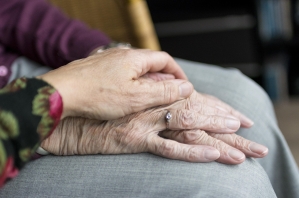
Amended assisted dying legislation being debated in the U.K. Parliament this week has drawn strong opposition from campaigners, who warn that the proposed law could put vulnerable people at risk and undermine protections for the terminally ill. A final vote on the bill is expected Friday (June 20).
The Terminally Ill (Adults) Bill legislation, devised by Labour MP Kim Leadbeater and approved in December 2024, will allow "adults who are terminally ill, subject to safeguards and protections, to request and be provided with assistance to end their own life” for those with a life expectancy of no more than six months.
The bill has been reviewed by 23 MPs in a cross-party committee with a number of amendments made and a vote on whether to pass the planned law in its current form is expected at the end of this week.
Amendments approved include medical professionals banned from raising the prospect of assisted dying with child patients. Another clause prevents advertising assisted dying as a service.
“Assisted suicide claims to be compassionate but, in fact, it turns vulnerable people into problems that can be ‘fixed’ with a lethal substance,” said Andrea Williams, chief executive of legal rights group Christian Concern, in a press release.
“The message sent by a society that legalises assisted suicide is that some lives are not worth living. People start to believe that the elderly or the sick are ‘better off dead.’”
Helping people to end their lives is neither compassionate nor caring, the group said.
“Parliament and the courts have rightly refused to change the law multiple times in the last few decades. This new parliament needs to decide once again that human life deserves protection and care. We cannot be a society that believes some people are ‘better off dead’.”
The amended legislation has returned to the House of Commons where changes under discussion have reportedly included allowing medical staff to opt out of helping a patient die. Another amendment, as previously reported by Christian Daily International, was that the original bill pledged that assisted dying would only be allowed following signed permission from a high court judge and two doctors
However, writing an op-ed on Feb. 10 for the left-leaning British newspaper The Guardian, titled "I’m changing my bill to ensure people have a dignified death - here’s how," Leadbeater revealed reasons why she wanted an amendment for a "multidisciplinary layer of protection."
“I’ll be proposing an amendment to create a voluntary assisted dying commission,” she wrote at the time. “It would be chaired by a high court judge or a former senior judge, thus retaining the judicial element in my bill.
"The commission would then authorize expert panels to look at every application for an assisted death. Those panels would have a legal chair, but also include a psychiatrist and a social worker, who will bring their own expertise in assessing mental capacity and identifying any risk of coercion. In short, I’m proposing what could be termed ‘Judge Plus.’"
Meanwhile, Christian Concern claimed a number of MPs have “increasingly expressed concern about how the committee stage was run and with the biased makeup of the committee.”
“Many sensible amendments proposing safeguards to the bill were rejected by the committee,” noted the legal rights group, which also criticized the removal of a High Court judge as a safeguard for signing on each request for assisted suicide.
Christian Concern also took issue with the U.K. government’s impact assessment of the legal bill, saying it showed increased uncertainty about how the law would be implemented in reality, given expected high levels of “opt outs” from National Health Service professionals.
Another concern has been the seeming contradiction between the government’s equality impact assessment explicitly stating that people with mental health conditions are not excluded from accessing assisted suicide services, deemed “contrary to what some have claimed about the safeguards in the bill” by the rights group.
Concerns were also expressed by the legal rights group about pregnant mothers and people with disabilities not being excluded from accessing assisted dying, under the equality impact assessment.
“Those who voluntarily stop eating and drinking to worsen their condition are not excluded from accessing assisted suicide, neither are those suffering from depression or who feel they are a burden,” Christian Concern highlighted.
It warned that if the bill becomes law, all eligible patients would automatically be entitled to assistance to end their lives—even though not all of them would have access to quality palliative care.
“Doctors will be allowed to raise assisted suicide with a patient multiple times without any request from the patient. There are serious risks of pressure, coercion and abuse.”






